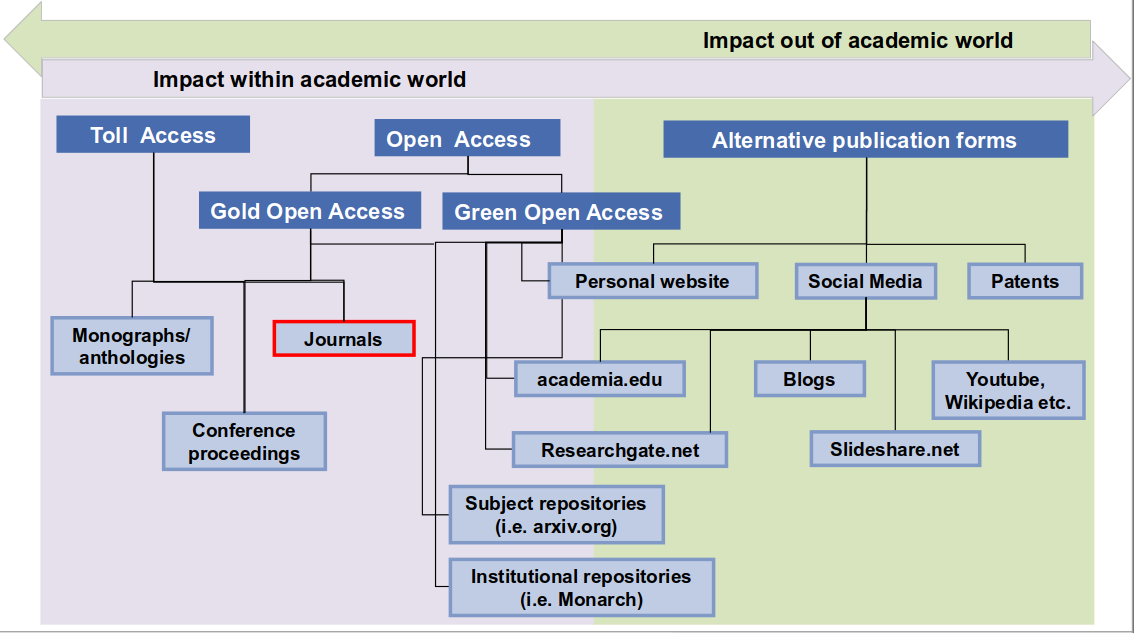
Making use of networks
Networking
Participation in conferences
Academic conferences are always events where scholars discuss about their research activities and present their scientific results. The participation in such conferences is also worth it for students in order to get a feeling for the currently discussed topics and questions as well as for relevant thematic fields and important researchers. It may be useful as well to begin networking at an early stage if you plan to work in science later.
Maintaining an individual website
In order to disclose own academic interests to others, you may also establish an own website including a current list of publications (also possible by linking with ORCiD).
Make use of blogs and podcasts
In order to get in contact with other scholars, to discuss research interests and scientific insights and to interlink contents, you may also elaborate blogs and podcasts.
Make use of social (academic) networks
There are social networks also for scholars serving at drawing attention to current publications and events (e.g. academic conferences) and to get in contact with each other. Networks of that kind are f.e. academia.edu (social sciences and humanities), researchgate.net (natural sciences and engineering), mendeley.com (trans-disciplinary).
Career planning
Developing a publication strategy
A publication strategy assists in enhancing the visibility and positioning of yourself and your publications, preferably with international outreach. In this context, you should deal with the following questions:
- By which publication medium do I reach my target group at best?
- Which journal is relevant in my own subject?
- Shall I provide my articles as Open Access publication?

Co-Authorship
Joint publishing with other scholars may (depending on the discipline) be very common. However, articles of several co-authors are in fact significantly more frequently cited than articles of single authors and thus contribute to the own visibility. (Wuchty et al. 2007)
Trans-disciplinary cooperation
The trans-disciplinarity of publications has a particular significant influence on the number of citations and thus on the own visibility and outreach. (Ortega and Antell 2006)
Internationality
Joint publications with international co-authors are partly four times more frequently cited than articles without international participation.
Clear identification
In order to allocate the variety of scientific institutions and scholars to their specific research activities, there are persistent identifiers which those institutions or persons may assign to themselves. The most common identifier is the ORCiD. It is possible to search for those identifiers in the ORCID-database and they indicate i.a. the institutional adherence of scholars (affiliation) and their research results published.
Data tracking in academia
Since the reform of the General Data Protection Regulation at latest, everyone has dealt with the processing of his own data in the web. In the academic context, this topic becomes more and more important as well: Are the academic publishers entitled to collect data via the universities on the publication activities and scientific interests of the scholars? An extreme example would be the access on data regarding which other searching instruments and software are used – if, for instance, a scholar accesses a paper on his computer via SciHub, even penal consequences may emerge from this. Against that opposes for example the initiative Stop Tracking Science
of the German National Library for Medicine.

 Hints for reading:
Hints for reading: